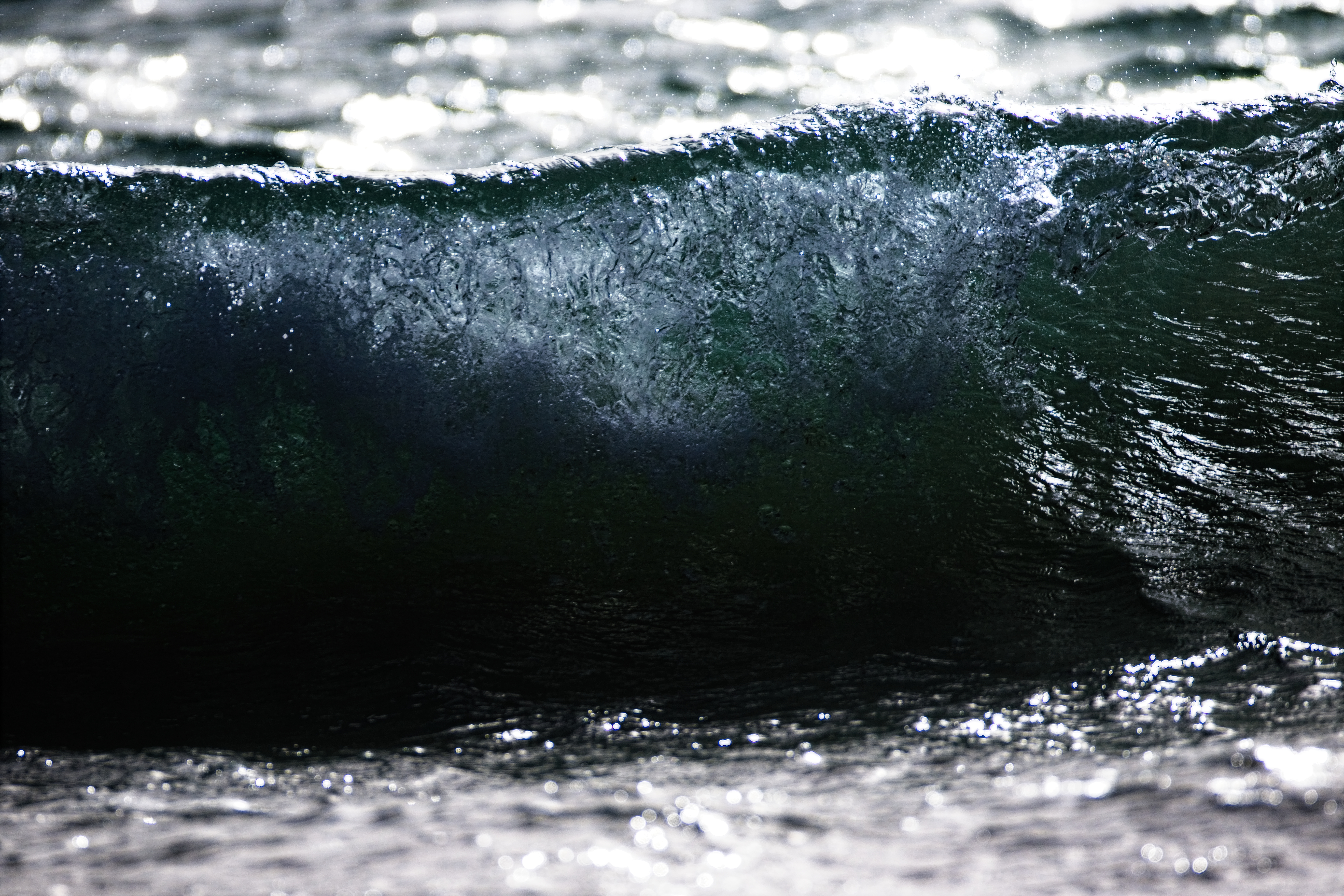In Waters Deep by Eileen Mahoney
In ocean wastes no poppies blow,
No crosses stand in ordered row,
There young hearts sleep… beneath the wave…
The spirited, the good, the brave,
But stars a constant vigil keep,
For them who lie beneath the deep.
‘Tis true you cannot kneel in prayer
On certain spot and think. “He’s there.”
But you can to the ocean go…
See whitecaps marching row on row;
Know one for him will always ride…
In and out… with every tide.
And when your span of life is passed,
He’ll meet you at the “Captain’s Mast.”
And they who mourn on distant shore
For sailors who’ll come home no more,
Can dry their tears and pray for these
Who rest beneath the heaving seas…
For stars that shine and winds that blow
And whitecaps marching row on row.
And they can never lonely be
For when they lived… they chose the sea.
© 11 October 2001 Eilee Mahoney
In Flanders Fields by Maj John McCrae
In Flanders fields the poppies blow
Between the crosses, row on row,
That mark our place; and in the sky
The larks, still bravely singing, fly
Scarce heard amid the guns below.
We are the Dead. Short days ago
We lived, felt dawn, saw sunset glow,
Loved and were loved, and now we lie
In Flanders fields.
Take up our quarrel with the foe:
To you from failing hands we throw
The torch; be yours to hold it high.
If ye break faith with us who die
We shall not sleep, though poppies grow
In Flanders fields.
May 1915 John McCrae
Two poems that are timeless, one over a hundred years old and the other not yet twenty years old. John McCrae was a military surgeon and his poem led to the use of the poppy first by the Americans and then Canada, France, the UK and across the World. I know very little about Eileen Mahoney other than her poem and that I often see it reproduced without a credit to her - which I always think is such a shame for such a poignant piece of work that brings the seafarer into McCrae's embrace.
The images of the Waves were all taken in the northern Atlantic on two different quiet beaches that today are places that are full of the sounds of the waves, birds calling and seals barking. It is only when you look at a chart and see the sea battles from the Great War and World War II that you appreciate what lies beneath the surface. Many ships, around the World, on the ocean floor are designated War Graves and for all but a few divers they remain out of sight. The heavy oil they left behind on the surface has long since gone and few who served in the frozen wastes of the Atlantic ocean (or beyond) remain to tell the horrors of when a ship is lost at sea. But Eileen Mahoney's poem captures the sentiment of many seafarers who though they can admire and reflect when they see the pristine row upon row of white War Graves can also shed a tear when they pass silently across a stretch of water that only they and a selected few know what lies beneath.




10 Responses
Richard Garrett
Great work; as a South Atlantic Medal holder I have the up most respect for all those who have and still do, protect us on the sea.
Geraint Ashton Jones
Thank you Richard.
Michael
What an absolutely great poem…written from the heart. As an ex-marine engineer with The Bank Line I was lucky to experience ‘The Sea’ in all its changing moods. Has anyone dedicated this awesome work to those who served on the North Atlantic Convoys?? Fitting I feel. I need to now ‘put’ this into the Hard Drive in my head!
Captain Randhir Singh
Wonderfully poignant and deep! Thanks.
Been at sea for over 40 years in submarindand all kinds of ships. A special thought to the Indonesian submarine. 53 noble souls she takes as her keep.
Thanks for putting this together.
Pottengal Mukundan
A great set of words, put together so evocatively. An absolute pleasure to read. Thank you!
Joseph Ruckman
Eileen Mahoney clearly has no idea what Captain’s Mast is, which is a pity, because it mars an otherwise deeply moving poem.
Geraint Ashton Jones
It may have just been to get something to scan. Because I like the overall poem so much I am more than happy to offer Eileen a full tot of poetic licence.
B. E. Watson
She may have very well been comparing “Captain’s Mast” to meeting your Maker, as when you stand before GOD to face the charges against you in life. As a retired Navy Senior Chief, I find the poem more than moving. I’ve been a part of burials at sea and find it more than appropriate for that occasion.
James K. Poole
Re “Captain’s Mast,” the U.S. Navy (and perhaps others) has such a thing as “Meritorious Mast,” for awards of medals, etc. Sadly, Mrs. Mahoney passed away May 3, 2021. She will doubtless be long remembered for this poem as it becomes better known.
Vincent Allen
Eileen Mahoney’s wonderful poem has particular importance for me, as my maternal great-grandfather was lost at sea in the Bristol Channel on Tuesday 27th February, 1918, due to U-boat action. He was serving as a crew member in the hospital ship, HMHS ‘Glenart Castle’.
WE WILL REMEMBER THEM.